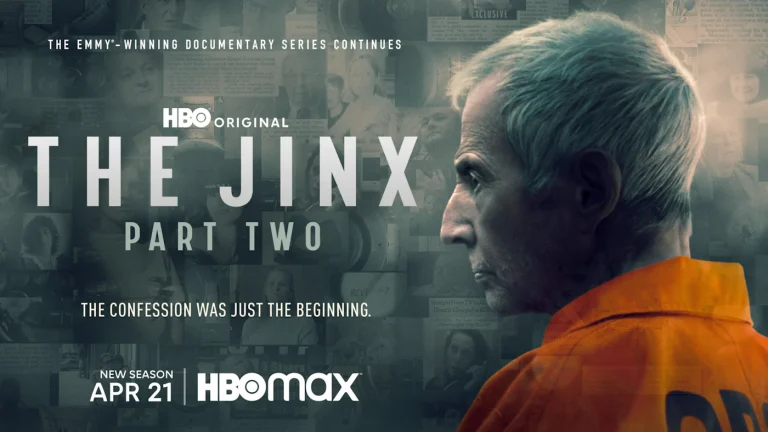
©Courtesy of HBO
The Jinx Part Two : is a new six-episode continuation of the groundbreaking Emmy®-winning documentary series “The Jinx: The Life and Deaths of Robert Durst,” from Andrew Jarecki, which debuted on HBO in 2015. In Part Two, the filmmakers continue their investigation for the next eight years, uncovering hidden material, Durst’s prison calls, and interviews with witnesses who had not come forward until now.
Director : Andrew Jarecki
Network : HBO
Rating : TV-14
Genre : Documentary
Original Language : English
Release Date : April 21, 2024
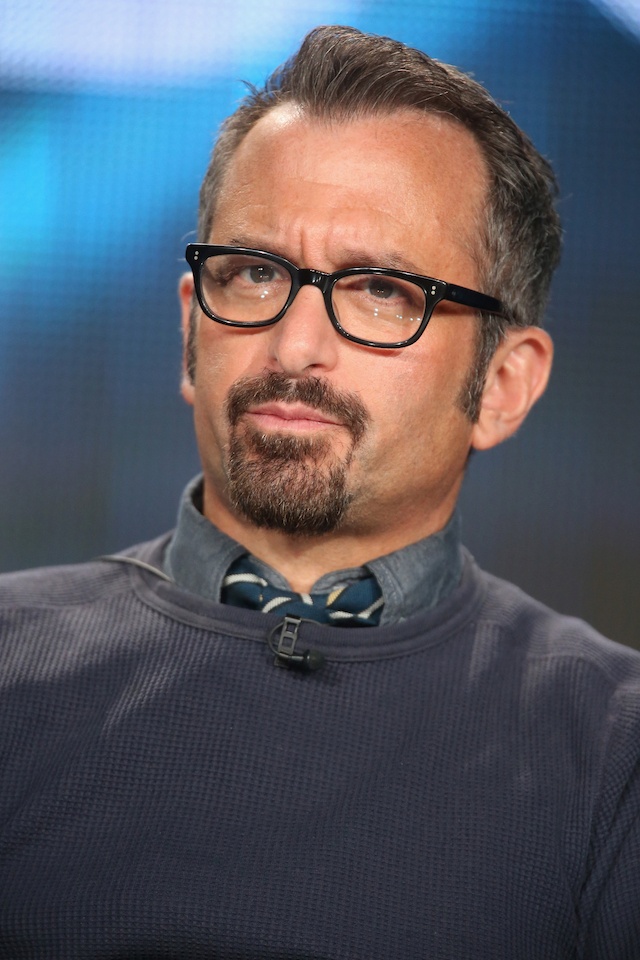
Director Andrew Jarecki, Courtesy of HBO
Press Conference with Director Andrew Jarecki & Executive Producer Zac Stuart-Pontier
Q : The Jinx was such an extraordinary cultural event. Did you have any hesitation at the beginning, telling the story of Robert Durst?
Andrew Jarecki : Zac and I worked on Catfish together and got to know each other, and then eventually we started to understand that there was a story to tell about Robert Durst, who had reached out to me after I had made a narrative feature film about him, All Good Things. I recall he was flattered because Ryan Gosling played him in the film, and he read an article about how much research we had done, so he reached out to me in a very strange way and said: “Hey I’d like to see it!”
So we arranged to see each other here in Los Angeles where he was living and we arranged for him to watch the film in Santa Monica, in a little screening room by himself. He had said to me originally “Well, it’s gonna probably take me a while to absorb this story about my life so I probably won’t call you right away after I see it…” and then the film ended at about 4.55 and he called me at 4 .57 saying: “I want you to know I liked the movie very much. I cried three times. Kirsten Dunst was just like my wife, Kathy, and you’ve really done your homework on Bob Durst, so maybe we should talk about doing something together.”
That led us into making originally a series of interviews, which we didn’t know what to do with. We interviewed him for about 21 hours, just thinking that it was going to be interesting. This guy had never spoken publicly before, and he gave such a remarkable set of answers to our questions, including a lot of disarmingly honest ones, because he’s very good at connecting with you and telling you things that you might be surprised by. I think for years people thought that if he was going to be that honest about those things he must be telling the truth about everything, which turns out not to be true.
Q : Which has been the biggest challenge you faced as you made these new six episodes of The Jinx?
Zac Stuart-Pontier : We were following the trial having constantly in mind one of the main structural questions, meaning when to start the trial and how much to go forward. There is a whole bunch of going back over deeper scrutiny of the material through the trial, cracking that took a long time.
Q : In the new episodes, there are so many peculiar characters. How did you manage to convince all of them to speak, including the judge in the trial?
Andrew Jarecki : That was very surprising. In the first six episodes, everybody’s talking about a historical set of facts. There are revelations obviously, but it is largely the telling of a series of stories that have happened in the past. The second part is happening at the moment, we’re basically following along as these developments are happening, starting with Robert getting arrested the day before the final episode of The Jinx. So the urgency is much higher, and the anxiety level for a lot of the people involved is much higher. Many people don’t want to be in the film in the second season.
These people are saying: “Well, maybe this is not so good for me. Maybe there were things that I did that I’m not proud of or I don’t want revisited, things that seemed okay in the moment, but in retrospect now, maybe it wasn’t such a good idea for example to go to the UPS and put out an $18,000 in a bag and send it to Bob Durst when he was about to go on the run.” You know, there are a lot of people who have done things that involved them in his life, and they didn’t want to participate.
So the lawyers, for example, the first time, there’s a giant victory lap for Dick DeGarren and the legal team. There’s a sort of cavalier attitude in that first season by people who have done some potentially bad things. I would say in this part two more people have done more bad things and they’re now in some way being held accountable for that. So getting people to participate in part two was actually a lot harder but they were caused, compelled, and cajoled. There were different ways of getting them to do it, but ultimately they knew they had to do it.
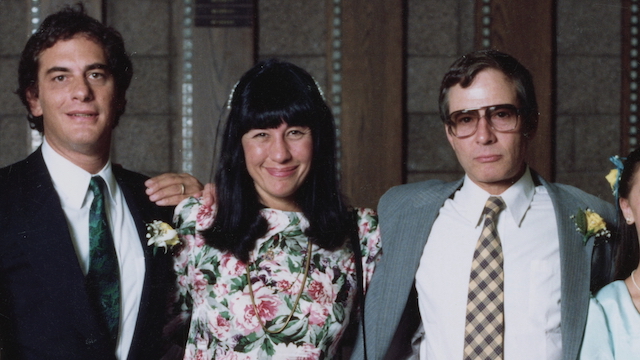
©Nick Chavin, Susan Berman, Robert Durst, Courtesy of HBO
Q : How did you handle this dilemma when you had to turn in your material as evidence against Durst?
Andrew Jarecki : It was a very nerve-wracking thing, we suddenly had these dual roles. On the one hand, we felt that we wanted to make a compelling human story, we wanted something that the audience would be grabbed by, surprised by, and then suddenly we had this evidence that we were surprised by. We always knew that there was a very good chance that Bob had killed these three people, but suddenly we were faced with evidence that made it clear that that was the case, and we thought it could be determinative in a trial.
If there was ever going to be a murder trial, we thought Bob would be convicted based on that evidence. Some families had been destroyed by Bob, there had been a lot of damage and now we had to think well what was our obligation now that we had this evidence. We wanted to handle it responsibly, we did a lot of digging around, met with a lot of lawyers and we ended up hiring Marsha Clark, the prosecutor in the OJ Simpson trial who’s very smart We were afraid that if we handed it over to the wrong people it would have gone the way of a lot of cold case murders with the evidence locked away somewhere.
Somebody could have felt afraid to prosecute a guy who’s as rich as Bob because it matters a lot. Bob could spend 10 or 20 million dollars on his defense and could really bury the prosecution in all the paperwork and all the fancy lawyering. Marcia told us we couldn’t get in touch with law enforcement before interviewing Bob because then later at a trial they would be able to say that we were working with the cops. So there was a concern that if we were going to press for a prosecution, which we planned to, we didn’t want to do it in such a way that would open up an angle for him to not get properly prosecuted.
Marcia suggested that we just be filmmakers and do all our work: confront him with the evidence, and see how he responds. It turned out to be really an idea because he responded in an extraordinary way and then once you have all that, then you can go to law enforcement with it. They wouldn’t run out and arrest him. It’s just not how it works. It’s going to take them potentially years to prosecute him, they’re not going to arrest him for a long time because they don’t want to start the clock on a speedy prosecution and then they wouldn’t be ready.
That advice changed our filmmaking process a lot, I think we had to make the decision pretty early on that, there was no version of this where we weren’t going to bring the material to law enforcement even if it put the film at risk we which it did: bringing 21 hours worth of interviews to the LA District Attorney and handing them over, not knowing whether he would keep them secret, whether somebody would leak them, whether they’d be floating around and Bob would escape. We knew that Bob had already visited Cuba, that he was walking around trying to look at places he could potentially go even before our film. We thought: “If we give this to law enforcement, and then they’re indiscreet about it, he’s gonna run somewhere far away. It was an unusual situation.
Q : When did you start filming part two? What was the timing of it?
Zac Stuart-Pontier : There was always a question about where part one was gonna end. Before we discovered the bathroom audio, we weren’t sure if the film was turning over the evidence to the LAPD. So, even back then, we were filming a bunch of material that would end up in part two. We didn’t know it at the time. Once he was arrested when the film was coming out, we were always filming everything. So we were, of course, covering our experiences of those moments. in the lead-up to the release of the end based on his arrest.
Andrew Jarecki : We were aware that these were extremely unusual circumstances. I don’t know whether there’s ever been another situation where you had filmmakers working on a film discover evidence that’s gonna prove somebody has committed one, two, three murders. It was happening so fast that I think we had to capture it in the camera. In the second season, the show gets so much into the issue of complicity. Who was helping Bob along the way?
Q : What is your personal opinion about Bob Durst?
Andrew Jarecki : I don’t think Bob wanted to kill these people. I don’t think Bob was a bloodthirsty killer. I don’t think of Bob as being like, you know, Jeffrey Dahmer or somebody who just has bloodlust. I always think that for Bob Murder is not preferred, but it is one of the possible means of conflict resolution. It’s on the table. It’s a possibility. It’s difficult. It creates all kinds of risks. He tries not to do it, but sometimes it has to happen. So I saw this strange humanity in Bob and so when he died I still felt sad even though I knew what happened to him had to happen.
Q : Can you tell us why you think people trusted Bob and how he got away thinking of his three murders without anybody knowing about it?
Andrew Jarecki : Well, you know, Bob was a very compelling person, he’s got a really powerful voice. He’s got this hypnotic sound. He’s very dominant. So when he’s with people, he would sometimes tell them to do this or do that. A lot of people submit to that. Obviously, Bob has tremendous resources. So if he wanted you to do something, he could make it extremely appealing. You see in the show that there are these people who are getting benefits from their relationship with him, even though they’re not always cash benefits. So I think people have all their reasons for following him. And we see people in our political landscape right who follow, the voice, the powerful personality. Is it the money? Is it the impression that this person is successful or important? A dominant personality can cause a lot of people to do bad things even if they don’t see themselves as bad people.
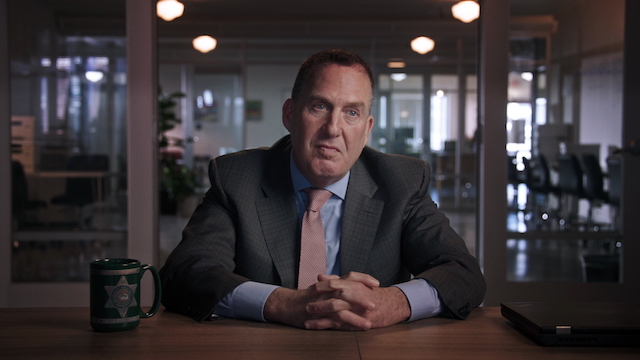
©LA Deputy District Attorney John Lewin, Courtesy of HBO
Q : How did you keep a straight face when he said all that in the bathroom?
Andrew Jarecki : We actually didn’t find the bathroom audio until almost two years after he went into the bathroom. We thought we were going to show him this letter that matched the famous cadaver note, which he admitted could only have been written by the killer. And we would just show it, show him that letter, and ask him if he had written that. And he looked at it and he said, “Yeah, I wrote that. It was a note I sent to Susan Berman. I think I sent her a check.” And then we showed him the envelope that had come in and it had the address, 1527 Benedict Canyon Beverly Hills.
When he saw that he started getting uncomfortable, but he didn’t know where we were going. And I said, “Well, now I want to show you the famous cadaver note.” I show him the cadaver note and it’s clear that the handwriting is a perfect match down to the misspelling of the word Beverly now he realizes that he’s in trouble, never expecting that anybody would find that letter that he had sent to Susan Berman years earlier. I showed him that and I said: “Well, so you wrote one of these, but you didn’t write the other one.” And he said yes.
And I said: “Well, can you tell me which one of these you didn’t write?” And he couldn’t answer. He wasn’t able to tell the difference between them. We know that we found evidence that proves he murdered these people. Bob gets up, he goes to the bathroom, and we’re kind of looking into each other and whispering and talking, and there were two or three microphones on at that time. I have a microphone on, I think there was a microphone in the room, and Bob has a microphone on in the bathroom, and so he’s in there washing his hands and doing stuff. Wireless mic, so he’s just not even thinking about it.
So when the sound guy is listening to whatever’s happening in the audio, it’s all on one, it’s all mixed. So you can’t hear Bob whispering to himself in the bathroom. Almost two years later one of our editors, Shelby Siegel, was going through kind of cleaning up audio tracks and she saw a little squiggle, a little waveform on Bob’s microphone: she muted the other track for the first time and she heard the first thing he says when he goes in the bathroom which is: “There it is, you’re caught. Now we had an actual literal confession. It changed everything.
Q : As a filmmaker, which season of The Jinx is closer to your heart? Which one did speak more to your inner sense of justice, for example?
Zac Stuart-Pontier : It’s such an interesting question, they are two different pieces, and I would say I love them both. The second one, there’s a complexity to it, because it’s almost like the whole story is folded onto itself. This Part One is a character in Part Two. So it’s hard to say.
Andrew Jarecki : For me, there’s something about Part Two that is so revealing about human beings. You know, we would always say when we’re making part one, how do you kill three people over 30 years and get away with it? Bob Durst is a crazy guy and he did all these terrible crimes, but if you pull the camera back, you realize that there’s a constellation of people who looked the other way or helped in some way. And that’s compelling to me for two big reasons: one is it’s extremely timely. As I look around the world right now, I have the subject of complicity on my mind all the time.
People who are doing things and say: “I wasn’t really there. I didn’t really do anything wrong. I mean, yes, of course, I was there, but I wasn’t really there. I didn’t really vote for that, or I didn’t really do that.” It is a very dangerous time in America if a guy like Bob Durst gives you a lot of insight into how people will follow in the footsteps of somebody who is dangerous. The second thing is that I have an overdeveloped sense of empathy and I want to understand people who do bad things.
It doesn’t really tell us anything about ourselves if we don’t learn anything from that kind of analysis whereas if you look at those people and you ask yourself what you would have done in that situation. When you see how people have to rationalize these behaviors, it causes you to ask questions about yourself. I do have compassion for the complicit people. It doesn’t make me apologize for them. It doesn’t make me think that what they did was right. But I think it’s something that we have to take in because we’re all being asked to be complicit in some way all the time.
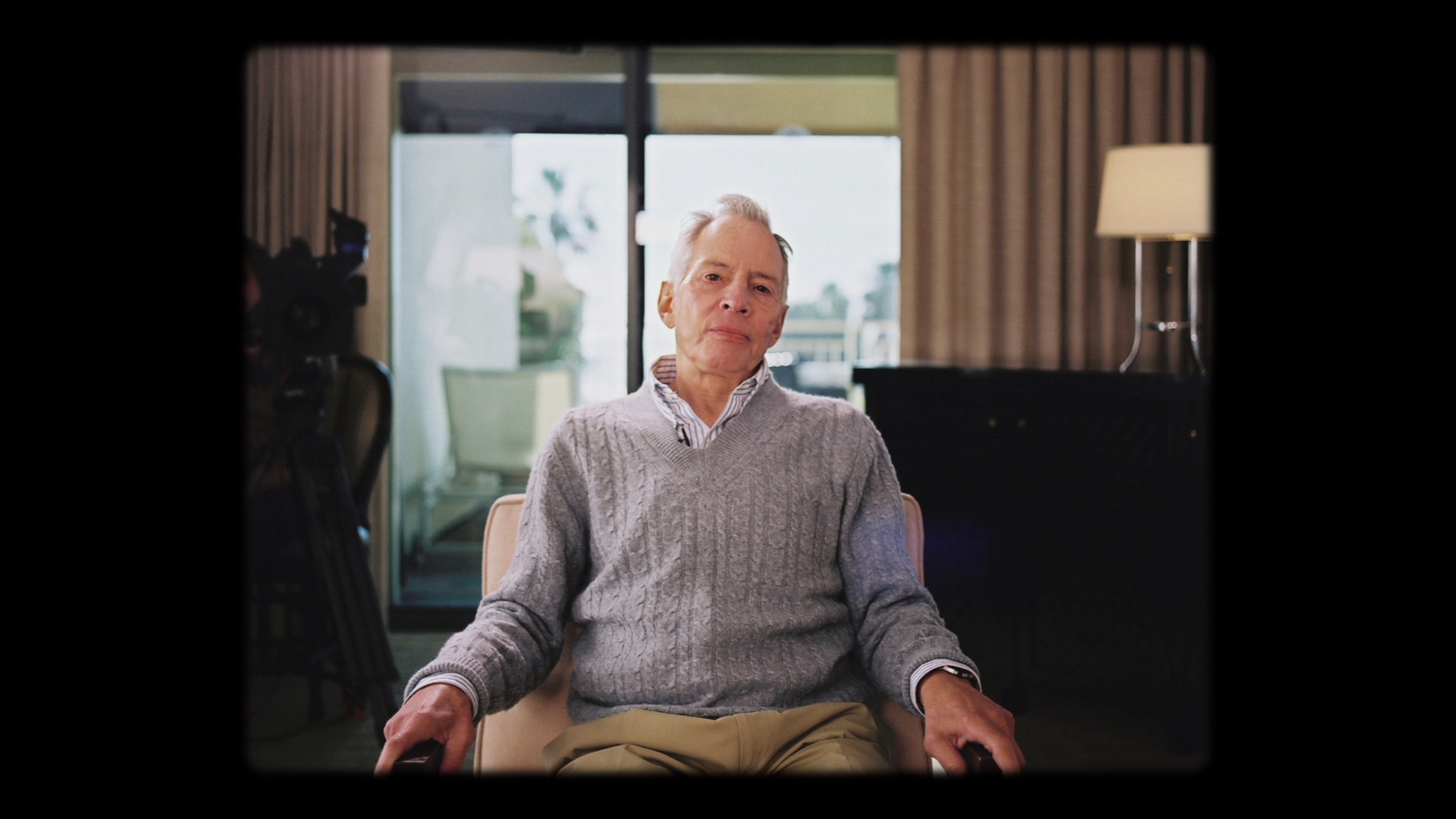
©Robert Durst, Courtesy of HBO
Q : Were you a bit concerned about your health and safety, considering all of the resources Bob had? Also, how did Bob react to the title of The Jinx?
Andrew Jarecki : The title originally came from a conversation between me and Bob because I was always fascinated by the fact that he never wanted to have a child even if he was with this beautiful incredible girl who obviously is a perfect mom. She’s going to grow up and be a pediatrician. I mean Kathy was an amazing human being and he was so positive that he shouldn’t have a child, that he forced her to have an abortion, And I said to him in the interview: “Why didn’t you want to have a child?”
And he said: “I guess I thought it’d be a jinx. I think I would jinx the child if I had one.” That was so tragic, it showed a certain level of self-awareness, he understood that he really would have been not a responsible person to raise a small child, he didn’t trust himself to do it. I didn’t feel much danger from Bob during the making of the show. I felt we had this rapport. I felt like I was doing something that he needed, and wanted. He wanted to be the subject of a big film of some kind.
He was being reckless about it. I think that made him very nervous when the fifth episode played and he got to see the evidence, he thought he now was in real trouble. And there’s still a sixth episode coming, so at that time I did start to feel nervous: he had said somebody who was very angry at me. We had assigned a security guard between episodes three and six.
Q : Do you see any parallels whatsoever between the OJ Simpson trial and Bob’s trial?
Andrew Jarecki : They were both super-covered in the media. The judge in the Durst trial was very thoughtful about how he would allow the story to be covered, so it didn’t get wowed by the notoriety of the trial. The judge is kind of amazing. He’s got a, he doesn’t have a gavel. But there were a lot of parallels. Certainly, the defense lawyers wanted it to be the OJ trial. They wanted to have the glove or to have a big smoking gun. And I think they thought it was going to be a film.
They thought they were going to prove that the filmmakers tricked Bob, made it seem like he was guilty because that was going to make for better TV.” They said it a lot. They believed they would be able to show that we had been in touch with law enforcement before that second interview and that we had gotten suggestions about what kinds of questions to ask. And then little by little, that fell away when they realized that there wasn’t going to be any juicy fruit there.
Check out more of Adriano’s articles.
Here’s the trailer of the series.

